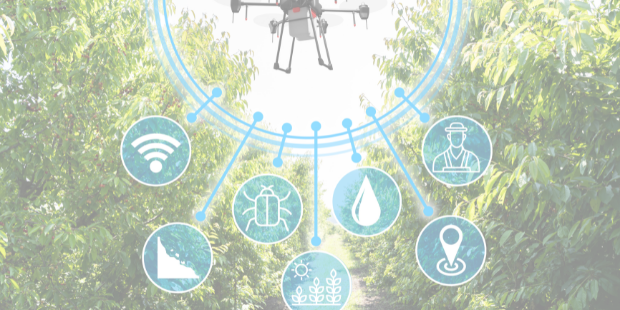Brazil has more than 1,100 technology companies (startups) focused on agribusiness. These companies stand out for combining technology with increased productivity and environmental care.
With innovative technologies, researchers are leaving universities and taking the research that was on paper to the field. At the same time, professionals linked to information technology, the internet, cloud computing, and artificial intelligence bring a new way of doing agriculture.
In this scenario, terms such as innovation centers, accelerators, Hubs, and Agro 4.0 emerge. And make no mistake! The technological revolution in agriculture is coming for all producers. Before facing this world of innovation, which is here to stay, it is important to understand the universe involving these technologies. Understanding how these innovations relate to agribusiness is essential for the producer to make an assertive choice.
Innovate to Grow
Agribusiness is the most productive sector of the Brazilian economy. For this reason, it never stagnates and is constantly evolving. Bringing innovation to the sector, in all its areas, is essential for us to continue developing a strong agriculture. Innovation in agribusiness arrived through the introduction of technology in the properties. It brought great news to the sector and has helped producers better understand the market’s demands. Another important point is the increase in production and product quality. When the producer has information about his production at hand, he can choose more assertively where he needs to improve.
One of the biggest innovation processes in agribusiness came through digital agriculture. With the use of applications, new systems, sensors in the fields, and data management, producers have in hand and in detailed real-time information about their production. An example of how innovation has benefited agribusiness is the systems that assist financial management. Bureaucracy often hinders the production routine, which is already very exhausting. With updated financial data, producers can improve payment, purchase, and sale processes. For example, with the updated data in software, the producers can measure their costs and price their products more efficiently.
Biotechnology is also an innovation.
When we talk about innovation in agriculture, a fundamental pillar is biotechnology – which has the union of science and fieldwork as its fundamental characteristic. This area has undergone several evolutions, such as genetic sequencing, microbiology, entomology, and molecular biology.
One example was the identification, selection, and editing of genes that allowed the development of more resistant crops. The use of phenotypic expression allowed the development of transgenic plants. In addition, genetic improvement enabled the development of more productive pastures, such as plants tolerant to chemical molecules and resistant to insects, pests, and diseases.
Biotechnology also brought vaccines, which aim to keep the herd healthy and prevent the transmission of diseases. An example of innovation in the area was the development of products with recombinant DNA, which may soon replace traditional vaccines. The technology increases the effectiveness of the immunizers, ensures quality, and reduces biosafety costs.
Another point was the development of bioinputs through biotechnological processes. Products aimed at biological control, such as those developed by Decoy, are innovations in agribusiness. With the development of more sustainable solutions for pest control in livestock, the producer will achieve gains in productivity. In addition, more natural solutions bring direct benefits to the livestock farmer’s quality of life.
Where everything happens
Innovation and the development of new technologies do not happen without work. More and more public and private companies are coming together to build a more robust innovation ecosystem. There is currently an innovative environment in agribusiness that drives the development of new technologies. Business incubators, for example, are environments where new companies find a safe place to develop their innovative products. Generally linked to universities or research centers, they include companies that operate in different areas of agribusiness.
On the other hand, Accelerators invest capital and assist companies in inserting their technologies into the market. Innovation Hubs unite companies with different solutions to exchange experiences. An example is “AgTech Garage,” we shared our history with this innovation hub. You can watch the full interview here .
As we have seen, innovations in agribusiness are here to stay. But more important than knowing what technology to implement, you need to know what your property needs. Thus, the probability of error and losses is reduced, and the producer can achieve gains with innovation.
Do you have questions about how Decoy can help you? Get in touch with us!



